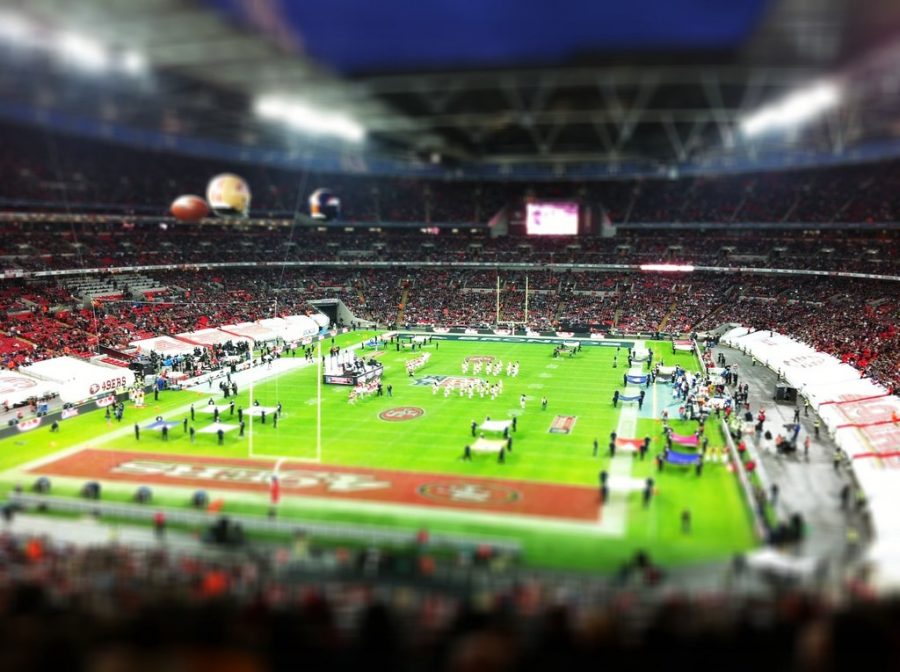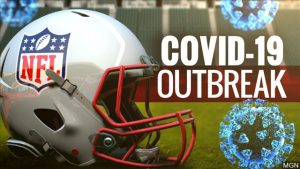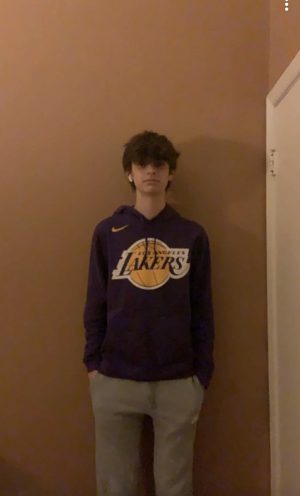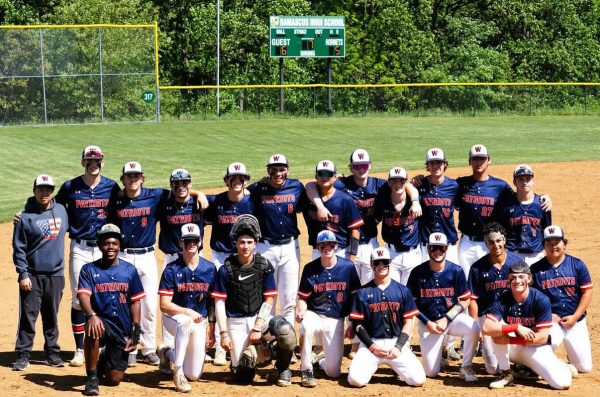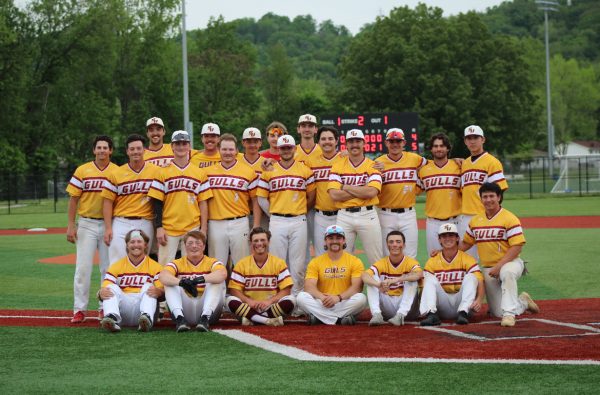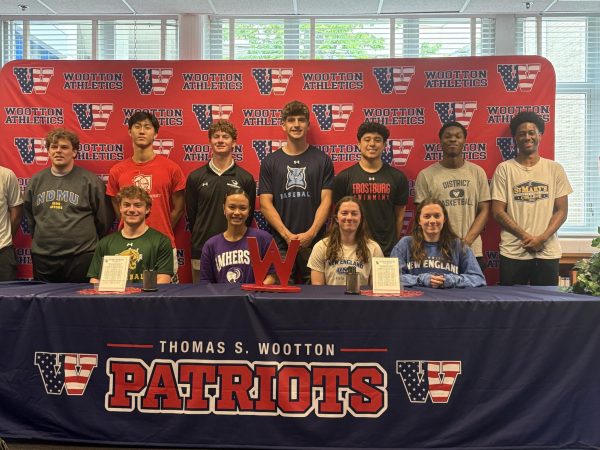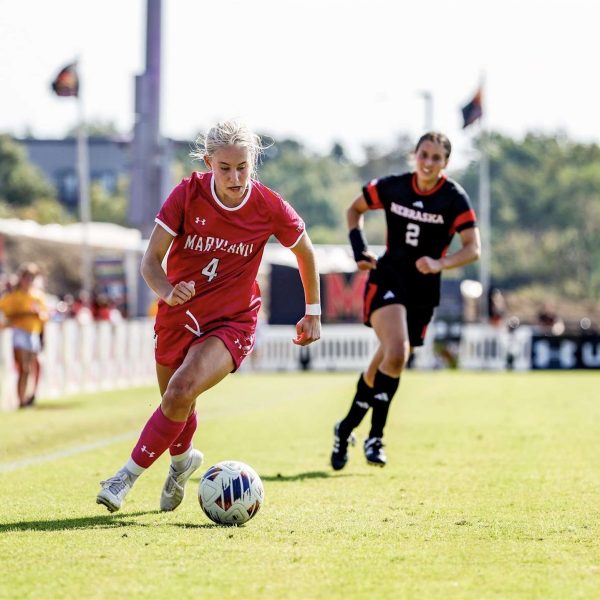Coronavirus affects NFL
Photo used with permission from Google commons.
The Broncos and 49ers warm up in a fully packed stadium, on Dec 9, 2018.
The Covid-19 pandemic has had a huge impact on the NFL and all professional sports. Just last year, stadiums were filled to the brim with fans and now each stadium can only have a couple thousand people.
Back in March, the NFL said they were planning on having a full season starting on schedule. So, on Sept. 10, Thursday night, the season opener between the Texans and Chiefs was played with 15,000 fans in the stadium. This was one of few games that allowed fans in the stadium for week one.
Every team now has to follow a new Coronavirus protocol. The main restrictions are that all people associated with the team must be masked at all times while in the faculty, all team meetings should be virtual or in a large area spread apart, everyone must be tested three times a week, and limited people can be in any room at one time (like the weight room for example.)
These restrictions have been successful in stopping the spread and no games have been canceled yet, but there have been seven games rescheduled.
One big restriction the NFL has put in is limited fans at games. Fans are a big part of football games, especially on the defensive side, and sometimes they can even change the outcome of the games. For example sometimes in the Superdome, the New Orleans Saints stadium, the fans get so loud that the offense can’t hear the plays that are being called.
Freshman Evan Lewis, who is a big football fan and player, thinks it’s strange to see no fans in the stadiums. “I’m so used to turning on the games to fully-packed stadiums and hearing the roar of the fans. Now it’s so much different when I see no one in the stands and I can’t hear any fans,” Lewis said.
If any players did not feel comfortable playing, the NFL granted them the ability to sit out of the season. In total 68 players decided to opt out. Players who opted out due to medical reasons will get a $350,000 salary for the year, and those who voluntarily opted out will get a $150,000 salary.
One player to opt out was Chiefs offensive linemen Laurent Duvernay-Tardif. Duvernay-Tardif is also a doctor and he decided it would be better to help on the frontlines as a medical worker instead of playing. “I cannot allow myself to potentially transmit the virus in our communities simply to play the sport that I love,” Duvernay-Tardif said in his tweet.
Your donation will support the student journalists of Thomas S. Wootton High School. Your contribution will allow us to purchase equipment and cover our annual website hosting costs.
Ryan is a 2023 graduate.


